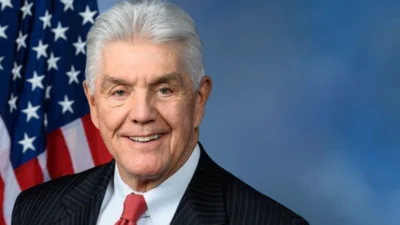U.S. Senator Shelley Moore Capito, who chairs the Senate Environment and Public Works Committee, led an oversight hearing focused on the U.S. Army Corps of Engineers’ progress in implementing provisions from previous Water Resource Development Acts (WRDA) and managing project cost overruns.
During the session, Capito questioned Adam Telle, Assistant Secretary of the Army for Civil Works, and Lieutenant General William H. Graham, Jr., Chief of Engineers and Commanding General, about delays in executing WRDA mandates. She highlighted that Section 1102 of WRDA 2024 requires a plan to be submitted to Congress detailing how both current and prior WRDA provisions will be carried out, including identification of items needing further guidance or funding.
“Many provisions provided in prior WRDAs have gone largely unimplemented. Section 1102 of WRDA 2024 requires that your office develop and submit a plan to Congress on the implementation of not just WRDA 2024, but prior WRDAs. This plan must identify provisions that will require implementation guidance or appropriations. So, my first question is, when can we expect the list of WRDA 2024 provisions to be finalized?” Capito asked.
Adam Telle responded by acknowledging concerns over slow progress: “My office, and I know General Graham, under his leadership of the Corps of Engineers, takes very seriously the work of this Committee. I'm committed to following the provisions in WRDA, following the law. This committee has expressed frustration over the speed of implementation of the laws that you have enacted, and as you point out, Chairman Capito, we owe you a plan about how to get that done.”
The discussion also addressed ongoing issues with cost overruns in Corps projects. Capito noted congressional efforts intended to give the agency more resources upfront for studying potential solutions but cautioned against excessive delays caused by extended study periods.
“On the cost overrun issues, this is just a consistently huge issue. We included several provisions intended to provide the Corps with more time and resources to better study possible solutions, the needs that might be on the front end, and you sort of mentioned this. Our intent was for the agency to then spend less time reworking project plans after they have been authorized for construction. However, we do not want these provisions to be interpreted as directive from Congress to the Corps to go back to the days when the agency spent years or decades studying a single project. What additional steps are being taken to address these cost overruns?” she said.
Lieutenant General Graham explained his approach: “Every time we don't deliver a project on schedule, I get an email from the district engineer who explains what happened, and then we have some very pointed discussions on what was the root cause. The vast majority of the root causes are, we didn't know enough.”
The hearing underscored ongoing oversight by Congress regarding federal water infrastructure projects managed by U.S. Army Corps engineers.









